Regarding Basil, there are a few key things to remember when selecting its companion plants. First, Basil likes full sun and well-drained soil, so select plants that also prefer these growing conditions. Consider the climate and weather conditions in your area. Basil prefers warm weather, so choose plants that thrive in similar conditions. Let’s check out a few best and worst companion plants for basil below.
Think about the amount of space you have available. Some companion plants can spread out and take over a garden bed if left unchecked, so give them plenty of room to grow. Consider the flavor profiles of the Basil and its companions; when selecting, you want complementary flavors to enhance each other. Finally, pay attention to each plant’s needs and ensure they complement each other.
With proper planning and care, you can create a beautiful and productive garden that will provide delicious herbs in all seasons. Basil is easy to grow and is a good choice for those new to gardening. When choosing companion plants for Basil, it is important to consider plants that will not compete with the Basil for nutrients or sunlight.
Best Companion Plants for Basil
Borage
Borage has pretty blue flowers, and its leaves have a Cucumber-like flavor. Borage is also a good companion plant for Tomatoes, Squash, Eggplant, and Potatoes. It attracts pollinators and beneficial insects, and it also deters Tomato hornworms. Borage is an annual herb that grows to a height of about 24 inches. It has blue or white flowers and hairy leaves. Borage is often grown as a companion plant for Basil.
In case you missed it: How to Grow Borage from Seed: A Detailed Guide to Planting to Harvesting
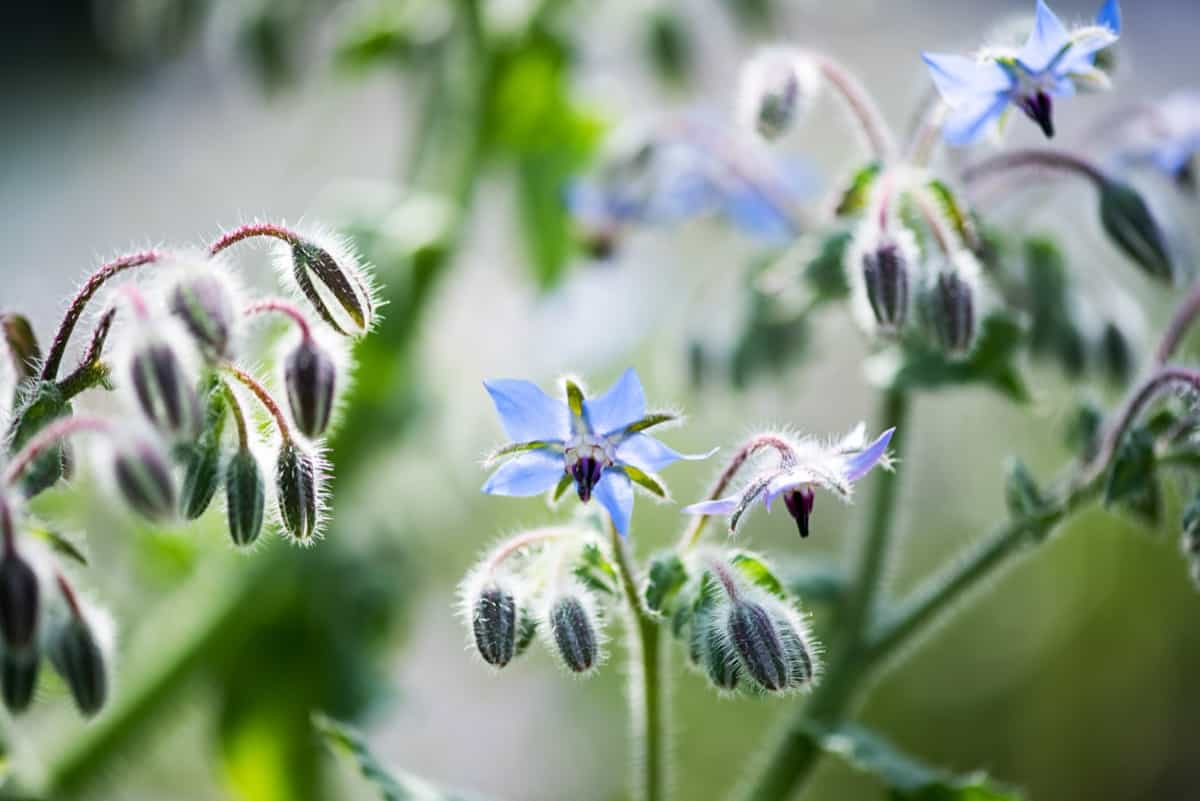
The two plants benefit each other in several ways. For example, Borage attracts bees, which help pollinate the Basil flowers. In return, the Basil protects the Borage from pests and diseases. The two plants also have similar growth habits. Both are fast-growing and tolerant of hot weather. This makes them ideal companions for each other in the garden. Consider Borage if you’re looking for a versatile and helpful companion plant for your Basil. This hardworking herb will make your garden more beautiful and productive.
Asparagus
Asparagus is a great companion plant for Basil. They have similar growing requirements and make a great team in the garden. Asparagus provides shade and shelter for Basil, and the dense foliage of Asparagus can help protect Basil from wind and pests. Asparagus also contains compounds that can help suppress weeds. Asparagus is a great companion plant for Basil. They look great together, and Asparagus provides several benefits to Basil plants.
For one, Asparagus helps to keep Basil plants upright and looking tidy. Additionally, Asparagus provides shade for Basil plants, which can protect them from the hot summer sun. Both herbs are low-maintenance and easy to grow, making them ideal for beginner gardeners. Asparagus provides shade and protection for Basil plants, and the two herbs share many of the same soil requirements. Plant Asparagus and Basil in full sun and well-drained soil when growing them.
Oregano
These two herbs are great companions in the kitchen and the garden. Oregano is a strong, pungent herb that adds flavor to dishes. Basil is a more delicate herb that has a sweet, floral flavor. Oregano prefers full sun and well-drained soil. If you’re growing Oregano indoors, give it plenty of light. A south-facing window is ideal. Water Oregano sparingly. Too much water can make the leaves lose their flavor. Harvest Oregano before it flowers for the best flavor. Cut the stems back by about half to encourage new growth.
In case you missed it: Insect Pests of Rose Plants: Chemical, Organic, and Natural Control Management
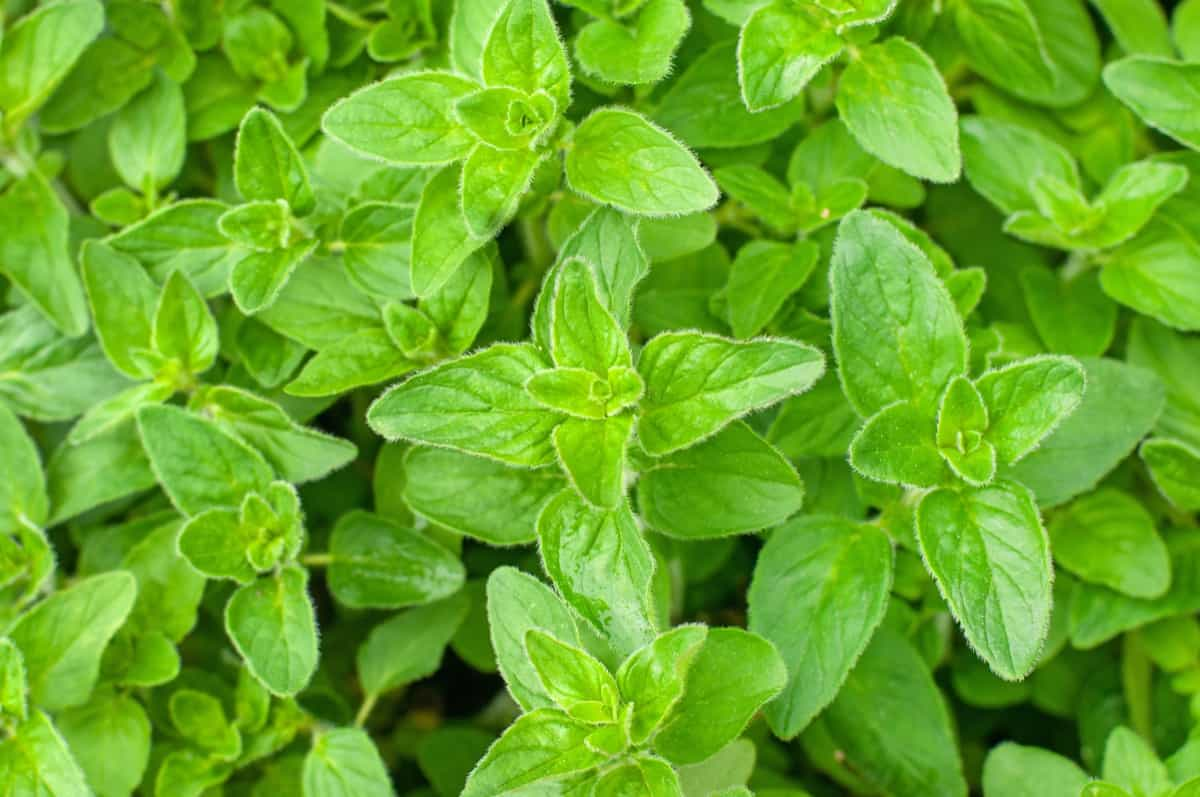
Chives
Chives are also a great companion plant for Basil. They help to repel pests and improve the health of the soil. Chives also have a pleasant, onion-like flavor. Chives are the best companion plants for Basil. When planted together, these two herbs create a perfect symbiotic relationship that benefits both plants.
Chamomile
Chamomile is a dried flower that can be found pre-packaged at most health food stores. Chamomile has been used medicinally for centuries and is still revered for its calming properties. The plant grows to about 12 inches tall and produces small, white flowers with yellow centers. Chamomile prefers full sun but will tolerate some shade, and it is drought-tolerant once established. Chamomile makes a good ground cover and can also be grown in containers. It’s a low-maintenance plant that doesn’t require much care once established.
In case you missed it: Best Herbs for Tea Garden: What to Grow in a Tea Garden
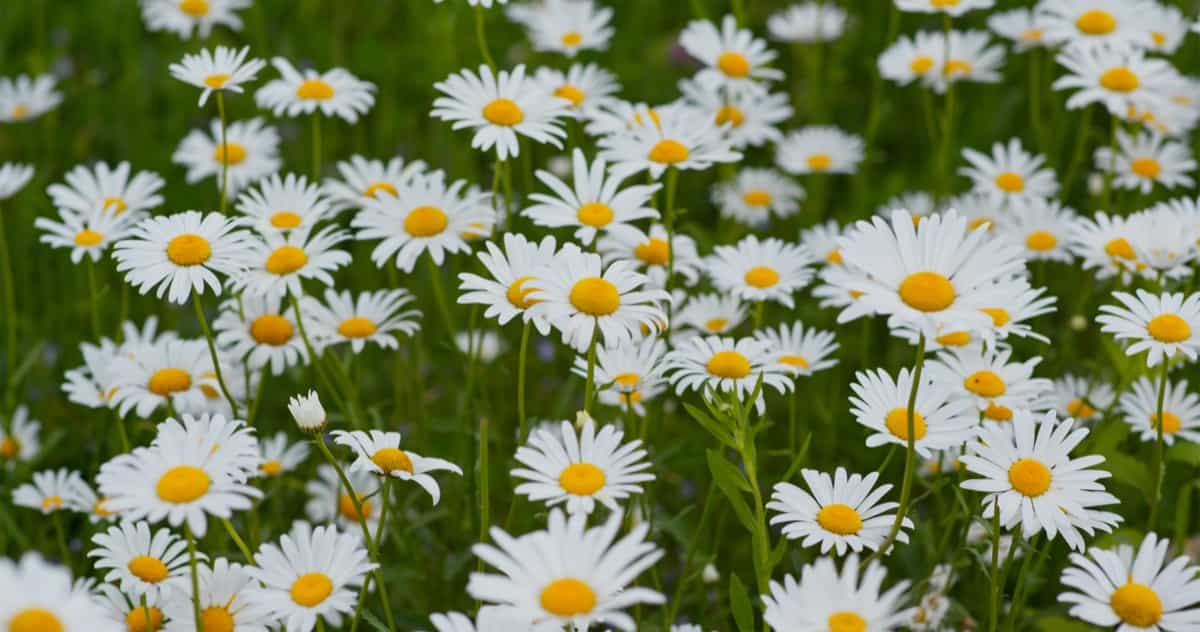
Peppers
If you love Basil, then you’ll try growing Peppers. Peppers are a great companion plant for Basil, and they can spice up your garden. Just keep an eye on the water needs of your Pepper plants, as they can be susceptible to drought. Several Peppers make great companion plants for Basil. Some of the best include Bell Peppers, Jalapenos, and Habaneros. Each of these Peppers has different benefits that can help your Basil plants to grow and thrive.
Bell Peppers are a great companion plant for Basil because they provide several nutrients essential for healthy plant growth. They also help to keep pests away from your Basil plants. Jalapenos are another great Pepper to companion with Basil. They help to increase the production of essential oils in the Basil plant leaves, giving the plant a stronger flavor and aroma. Habaneros are the hottest Peppers and can help deter pests from your garden altogether.
Marigolds
Marigolds are a great companion plant for Basil. Not only do they look beautiful together, but they also help to keep pests away from your Basil plants. Marigolds emit a strong scent that repels many common garden pests, including aphids, whiteflies, and spider mites. This means that your Basil plants will be less likely to be attacked by these pests and will be able to grow more vigorously.
In case you missed it: How to Grow Marigold Flowers from Seed to Harvest: A Planting Guide for Beginners
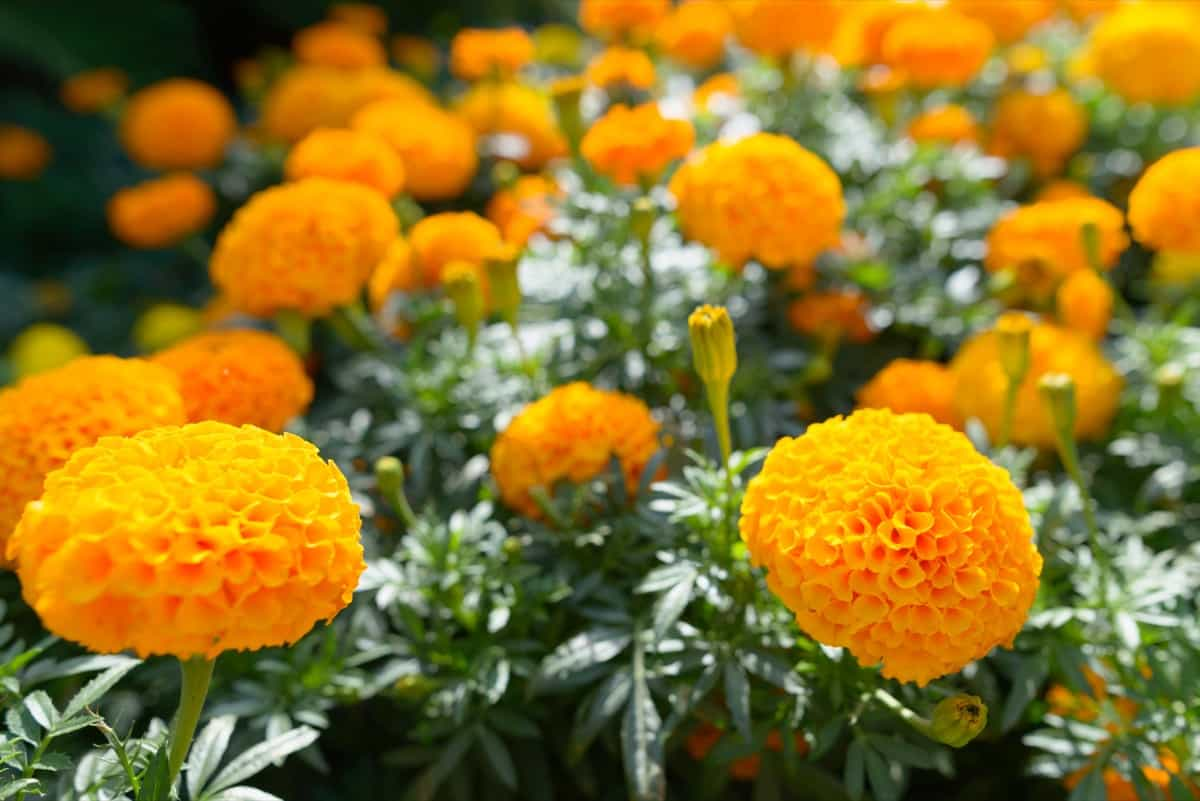
Additionally, Marigolds release pyrethrin into the soil, which helps kill nematodes, another type of pest that can damage Basil plants. There are many benefits to planting Marigolds with Basil. Marigolds deter pests and attract beneficial insects, making them a perfect natural pest control companion for Basil. They also improve the flavor of Basil when planted close by. Marigolds are easy to grow and make a beautiful addition to any garden.
Root Vegetables
Root vegetables are a great addition to any garden and are especially good Basil companions. Some of the best root vegetables to plant with Basil include Carrots, Potatoes, and Radishes. Carrots and Basil are a classic combination. The two plants have similar growing habits and needs, making good companions in the garden. Carrots are a good source of nutrients for Basil, and the two plants can help each other thrive.
Potatoes and Basil also make good companions. Potatoes provide shade for Basil, which helps the herb to stay cool in hot weather. Basil can also help deter pests from attacking potatoes. Radishes are another good option for planting with Basil. Radishes grow quickly and can help to keep the soil loose around Basil plants, which helps them to grow well.
Radishes also add some color and interest to the garden bed. Root vegetables are essential to any garden, and Basil is their perfect companion. Not only does Basil help to keep root vegetables healthy, but it also enhances their flavor. When planting Basil alongside root vegetables, give them plenty of space to grow. Root vegetables need room to spread their roots, and Basil needs room to spread its foliage.
Tomatoes
Basil is also a good companion plant for Tomatoes. The two plants have similar growing requirements and share many of the same pests and diseases. Tomatoes are a popular choice for companion planting with Basil. The two plants have similar growing requirements and share many of the same pests and diseases. The main benefit of planting Tomatoes with Basil is that the herb can help repel insects that would otherwise damage the plants. Basil also improves the flavor of Tomatoes when they are grown together.
In case you missed it: How to Control Pests and Diseases in Tomato Crop: Causes, Symptoms, Chemical, and Biological Management
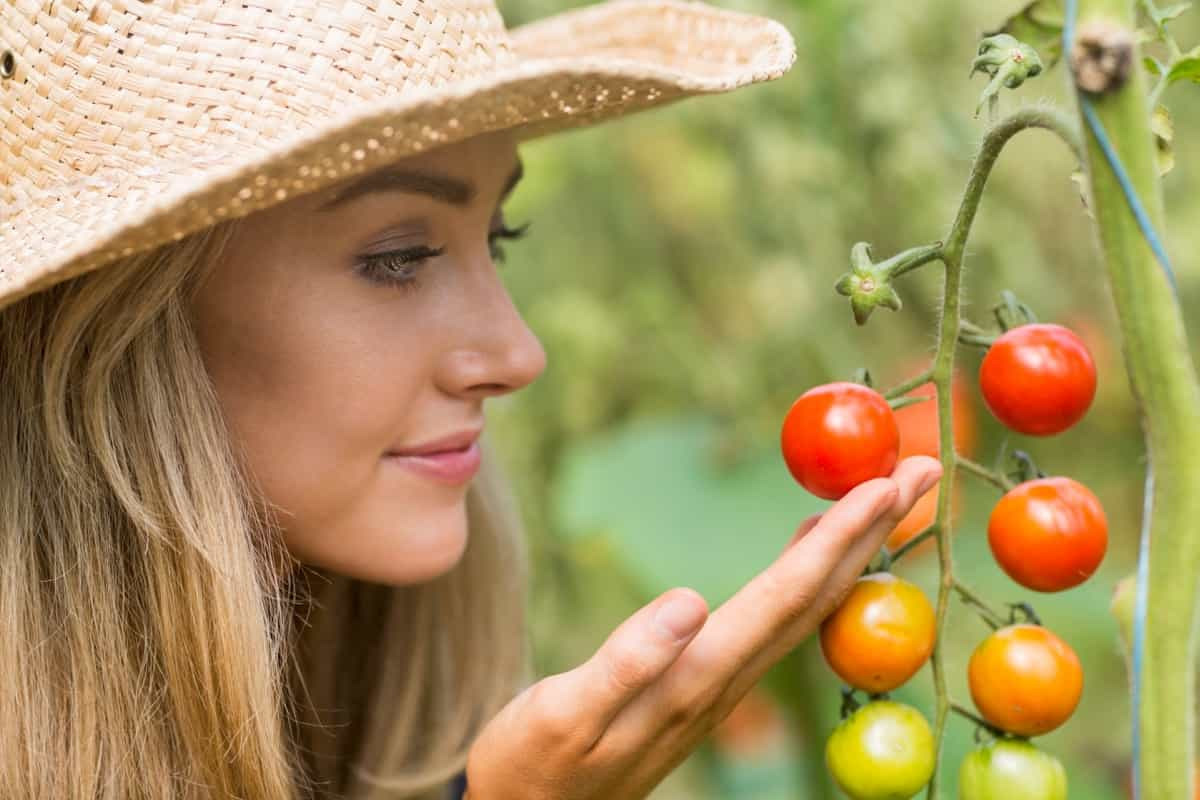
Remember a few key things when considering which plants to pair with your Basil. First, consider the climate in which your plants will grow. If you live in a hot, dry climate, Tomatoes are a great option for a companion plant. They love the heat and can help to keep the soil around your Basil plants moist. You should also consider the amount of space that you have available. Tomatoes can be quite sprawling, so you may want to consider another option if you’re limited in space.
Worst Companion Plants for Basil
Sage
When it comes to planting Basil, avoid placing it near Sage. The two plants have different preferences regarding watering, and Sage will quickly outcompete Basil for water if they’re grown together. Additionally, the oils in Sage can inhibit the growth of Basil. If you must plant them together, give them plenty of space and water Basil more frequently than Sage.
In case you missed it: How to Grow Sage from Seed to Harvest: Planting and Care
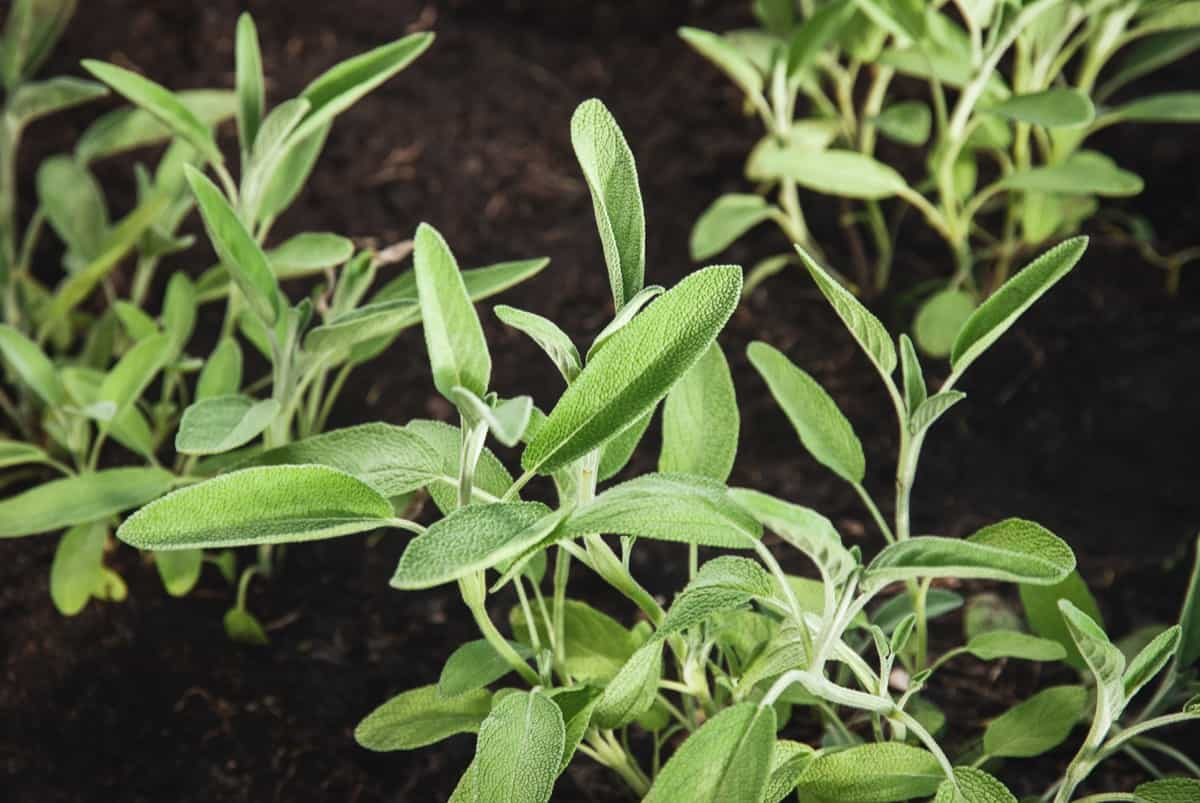
Rue
Rue is a plant that can be found in many gardens. It is a hardy plant that can tolerate most conditions but does not like being near Basil. The reason for this is that Rue can inhibit growth of Basil. If you want to grow both plants, keeping them in separate areas of your garden is best.
Cucumbers
Cucumbers and Basil don’t always grow well together. Cucumbers are heavy feeders and require many nutrients to grow well, which can compete with Basil for resources. In addition, Cucumbers are typically more aggressive growers than Basil and can quickly overrun and smother it. For these reasons, it’s best to avoid planting Cucumbers with Basil.
In case you missed it: Growing Cucumber from Seed to Harvest: A Detailed Guide for Beginners
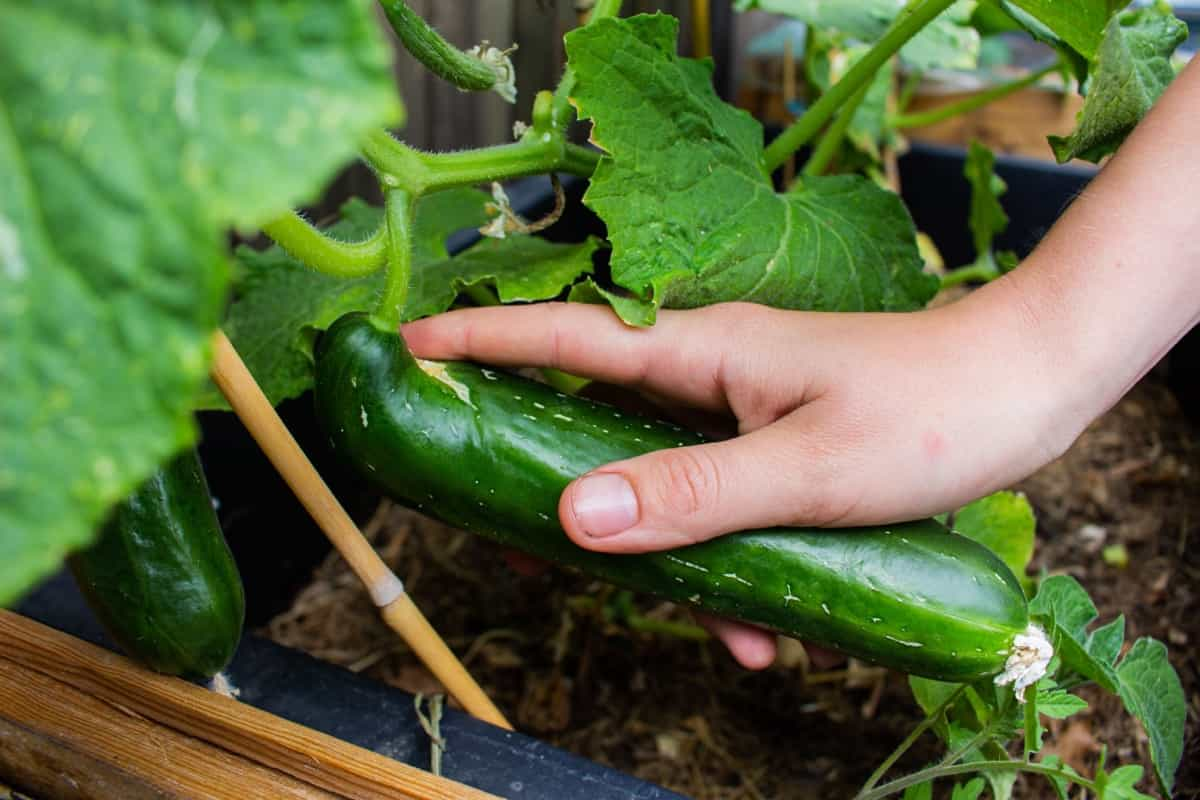
Conclusion
The best thing about Basil is that it’s not picky about its companions. There are very few plants that Basil doesn’t get along with. So, the sky’s the limit regarding companion planting with Basil. The best Basil companion plants share the same growing conditions and soil requirements. When selecting companion plants for your Basil, look for similar water and fertilizer needs.
Additionally, choose plants that will not compete with each other for space or nutrients. Plant a few different combinations and see how they do. Over time, you’ll determine which plants help your Basil thrive and which don’t. Ultimately, experimenting is the perfect way to determine what companion plants work best with your Basil.
- How to Grow Hibiscus from Flower
- Plantation Ideas for Home Decoration: A Beginners Guide
- Flower Garden Designs and Layouts for Beginners
- Planting and Spacing Techniques in Papaya: A Beginner’s Guide
- Growing Gold: Essential Techniques for Planting Pineapples
- How to Make Kalanchoe Plant Bushy: Home Remedies and Solutions
- 11 Reasons Why Your Gardenia is Not Blooming: Home Remedies and Solutions
- Eco Elegance: The Guide to Designing a Drought-Tolerant Landscape
- Gardening on a Slope: Strategies for Hillside Landscaping
- Nourish and Flourish: Top Organic Mulches for Thriving House Plants
- Everything You Want to Know about Indian Mogra Flower: Discover Uses and Growing
- Green Thumb Success: Expert Tips for Cultivating Greenhouse Pumpkins All Year Round
- Maximize Growth & Flavor: The Ultimate Guide to Companion Planting in Herb Gardens
- How to Control Rhododendron Problems Naturally: Home Remedies and Organic Ways to Fix Them
- Natural Magic: The Remarkable Benefits of Cinnamon for Plants
- Best Steps to Revive Dying Tulip with Natural and Organic Treatment
- 10 Reasons Why Your Angel Trumpet is Not Blooming: Remedies and Treatment
- How to Fix Periwinkle Leaf and Flower-Related Problems: Natural Remedies and Solutions
- How to Fix Zinnias Leaf and Flower Problems: Discover Natural and Home Remedies
- Organic Steps to Induce Lemon Tree Flowers: A Comprehensive Guide
- Bloom Booster: Crafting the Perfect Homemade Bougainvillea Fertilizer
- Optimizing Growth: A Guide to Applying NPK Fertilizer for Potted Plants
- 10 Best Homemade Fertilizers for Rubber Plant: DIY Recipes and Application Method
- How to Boost Female Pumpkin Flowers: Effective Steps for More Flowers and High Yields
- Transform Your Indoor Garden: Top Benefits of Pink Salt for Houseplants
- 10 Best Homemade Fertilizers for Peacock Plants (Calathea): Easy DIY Guide
- Unlock Blooms: 9 Reasons Why Your Potted Chrysanthemum is Not Blooming
- 8 Reasons Why Your Potted Hibiscus is Not Blooming: Fix it with Simple Solutions
- Unlock Blooms: 9 Key Reasons Your Potted Frangipani Won’t Flower
- 10 Reasons Why Is My Ice Plant Not Blooming: Remedies and Treatment
- 10 Reasons Why My Potted Hydrangea Not Blooming: Treatment and Remedies
- 10 Reasons Why is My Wisteria Not Blooming: Remedies and Treatment
- 10 Reasons Why is My Goldfish Plant Not Blooming: Remedies and Treatment
- Maximize Your Space: Ultimate Guide to Balcony Gardening with Grow Bags
- 10 Reasons Why Your Iris is Not Blooming: Remedies and Treatment
- 10 Reasons Why Your Anthurium Plant is Not Blooming: Treatment and Remedies